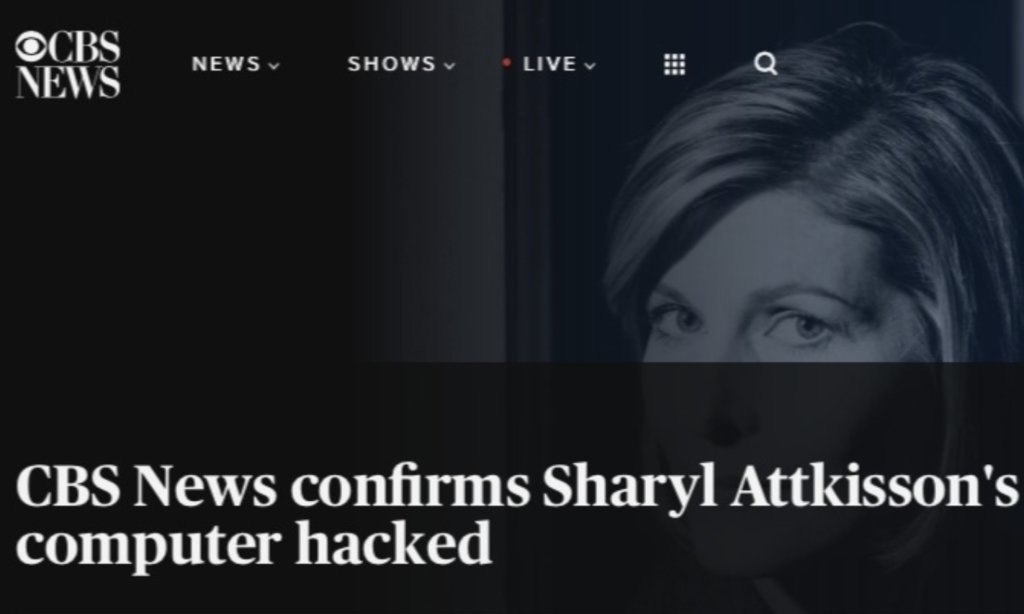
The following is a transcript of an investigative report on Full Measure News. Click on the link at the end of the transcript to watch the video story.
After the chaotic 2020 elections, there are bipartisan calls for election reform. But little agreement between the political parties as to what the reforms should be. The first bill brought by the New Democrat-led Senate: the “For the People Act.” It’s the liberal version of what changes should take place. But how likely is election reform in America? Scott Thuman takes a look.
It was an election season like no other.
Trump: Now I’ve got to say, I’m working my ass off here.
Staged against the backdrop of a global pandemic.
Biden: We can, and we will control this virus.
With complaints of paused counts, record mail-in votes, blocked observers, and an overnight flip in results.
CNN anchor: CNN projects Joseph R. Biden Jr. is elected the 46th president of the United States.
FOX anchor: Joe Biden will win, putting him over the 270 electoral votes he needs to become the 46th president of the United States.
The result didn’t stop the anger and arguments. If anything, they got worse.
Trump: We were getting ready to win this election, frankly, we did win this election.
The bitter post-election period marked by dozens of court cases that went nowhere, accusations of a stolen vote, and new polls suggesting that two months after the election, 38 percent of Americans still don’t think the election results are accurate.
The last formal process of an American election, the count and ratification of state by state votes in congress, was itself violently interrupted.
(Scott on camera)
American has been a democratic constitutional republic for longer than any other nation but our system is not without problems and flaws and it does evolve. After each election, there are always lessons learned
Scott: A lot of what people were there pushing, was what they claimed was this ‘stop the steal.’ That was their movement. In a larger sense, their assertion was that this election system is broken. Is it?
Olson: I don’t think it’s broken. It can use improvement.
Walter Olson is a senior fellow at Washington’s libertarian Cato Institute, he studies constitutional law and elections. Though he rejects claims of a stolen election, he says the discussion is vital.
Olson: It’s important to keep fraud out. Fraud has happened in American history and not just in the distant past.
Just hours after the capitol was reopened, senators made impassioned pleas for unity, but perhaps lost in the torrent of news that day–the bipartisan calls for electoral reform. With partisan differences about what those reforms should be.
Lankford: The peaceful people in my state in Oklahoma want their questions answered, but they don’t want this, what happened today. They want to honor the constitutional process, but they also want to have a debate about election security because they want to make sure it is right.
Markey: We need automatic voter registration, we need online voter registration, we need same-day voter registration. We should make election day a federal holiday.
But the reality is, though congress can write laws, it’s the state’s job to manage elections. Already some are working on changes for the next election.
Fight government overreach and double-standard justice by supporting the Attkisson Fourth Amendment Litigation Fund for Attkisson v. DOJ and FBI for the government computer intrusions. Click here.
In Georgia, the republican secretary of state was both lauded and criticized for rejecting President Trump’s efforts to overturn a Biden victory. But in the future, his office may lose the power to manage elections in a series of proposed changes expected to be considered by the republican dominated state legislature.
In Maryland, Republican Governor Larry Hogan, is focusing on an area that’s been a source of dispute and court challenges for years – electoral districts.
Both republican and democrat lawmakers in Texas have suggested changes. One would limit the governor’s power to alter voting rules during an emergency situation, like a pandemic.
In New York, the controlling democrats want to make absentee voting easier and provide ballot drop boxes for all future elections. And there’s broad public support for some adjustments. In a you.gov survey managed by MIT’s election lab conducted after the 2020 vote: paper backups for voting machines and stronger voter ID requirements were two of the most popular changes.
Also a notable result of the survey: a stark fall in the faith that GOP voters have that votes were counted properly with just 23 percent of republicans saying they were very or somewhat confident down from 80 percent four years ago.
To understand how elections can be flawed and then fixed, look no further than Florida, where George W. Bush narrowly beat Al Gore.
Olson: Florida of course, in the year 2000, was the center of the world’s attention because it didn’t do a very good job of counting and confirming and recounting its votes.
Scott: Came down to 537 votes.
Olson: It did. And that would be a headache either way but the way that Florida counted was also a problem, so Florida learned. And this is something where both parties to some extent, wanted a solution. They didn’t want to put their state in that position again. And so, Florida this year, was one of the best performing states.
In fact, Olson says, the speed of the count is one of the lessons that should be learned from 2020, because a slow count can sow doubt.
Olson: Here you saw some states getting an essentially full count the very first night or shortly thereafter. And you had other states that took days, painful days, in which large cities or counties within the state didn’t get their returns in until much later. Now, when they reported, the state’s outcome changed. We saw that in several of the states that were challenged by Trump supporters. I think everyone should be looking for ways to get that vote counted earlier.
Though some argue instances of election fraud, or irregularities, are few, falling levels of trust in the process by some could spell trouble in the future.
Alexander: Perception becomes part of people’s reality and they need to learn that in the information world that we live in, they need to have a better understanding of how to figure out fact from fiction.
Paige Alexander is CEO of the Carter Center in Atlanta. The organization founded by Former President Jimmy Carter that’s best known for its work promoting democracy around the world. In nearly 40 years, they’ve monitored 113 elections overseas.
Alexander: The U S is a real outlier. We’ve got our neighbors to the north and the south Mexico and Canada who have independent electoral administrators. We do this in almost every country. We have central election commissions that we work with, and that really allows us the ability to have a uniform system that we are tracking here in the United States. It’s 50 different elections in Georgia. It’s 159 different counties. Many times, it’s actually comes down to the County level. And so, it’s very hard to keep an understanding of exactly where we are tracking different rules and regulations if they’re changing so much. And so, I think as we look at it, if we were to crystal ball what we’re able to bring forward from our overseas experience, much of that would be a central election commission and independent nonpolitical system that sets up an election program that allows everybody to follow the same rules.
In the end, Olson sees the state-by-state election system in America as more of a strength than a weakness.
Olson: The constitution is actually, I think, quite wise in keeping this decentralized. It means for one thing, that there’s no single lever to pull to make things go wrong if someone has bad intent. It means that states can experiment as they have with different methods and discover by trial and error, which ones work well. And we’ve seen a great deal of that. There have been dozens of different voting machine systems and vote count systems. Some of them have been kind of disastrous but imagine Washington prescribing the disastrous one for everyone to use the same day.
FOR FULL MEASURE, I’M SCOTT THUMAN
Sharyl (on camera): Since real reform is most likely to happen at the state level, New York is already moving a bill through its legislature that would make absentee ballot voting easier and count them earlier.
Click on the link below to watch the video report on FullMeasure.news:
http://fullmeasure.news/news/cover-story/election-next-time









